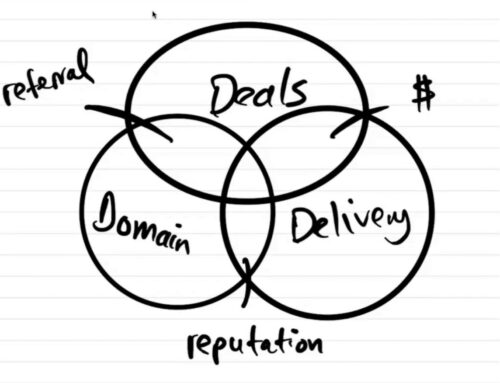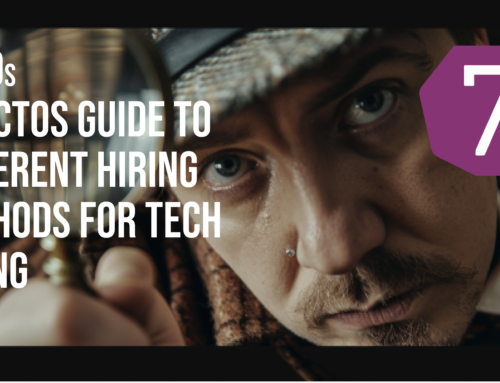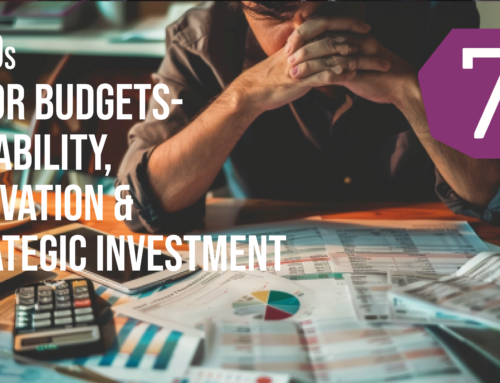Ep.103 Surviving The Start Up Graveyard By Building A Nimble Company
Are you a technology professional looking to connect with like minded people?
We have a thriving community of CTOs discussing these episodes and more.
Click HERE to set up a call and learn more about becoming a member.
About The Speaker:
 Daniel Hindi is the CTO of Buildfire. He is also on the Forbes Tech Council. More recently, he started a YouTube channel called Cogent Step to help build the relationship between founders and their technology people.
Daniel Hindi is the CTO of Buildfire. He is also on the Forbes Tech Council. More recently, he started a YouTube channel called Cogent Step to help build the relationship between founders and their technology people.
Episode Resources:
Subscribe to Cogent Step: https://www.youtube.com/channel/UC7v7…
Check out Buildfire: https://buildfire.com/
Episode Transcription:
Nickolai: [00:00:05] Hello, hello, welcome back, one and all to the CTO studio, I am, of course, your host, Nickolai Walker. Today we continue our talk with Daniel Hindi who is the CTO at Build Fire. Build Fire helps to build the relationship between founders and their technology people. And I want to start off this segment by asking Daniel: How did you escape the startup graveyard? It appears to me that so many people have a desire to create a company, but it just doesn’t sustain itself. How did you avoid that?
Daniel : [00:00:38] So it’s hard for me to speculate on luck, but timing is key. You only know that hindsight, right? We are extremely nimble. Our competitors have millions of dollars of funding where we only had seed money and we were outmaneuvering them.
Daniel : [00:00:58] Why, when you are bred into, you know what hunger is, you know what? Having no budget and I literally have said this to my CEO, I’m all out of miracles. That’s it. I’ve done a lot of miracles. And lo and behold, when there’s a will, there’s a way and you figure it out and being able to be nimble, understanding that if you can breed your technical team and coach them in a way for them to understand business, there’s so many technical teams that will create the world’s best foundation for a building that will never see the first story because they blew the budget on the world’s best foundation. That’s great, but that doesn’t mean building a building here. I need first, second story. And so we all know this. If you let if you let an engineer just run awry, they think sometimes too much in code and don’t understand what’s the dollar that came in today needs to bring in tomorrow’s dollar. And the dollar that’s in today is much more precious than tomorrow because today I only have one dollar and tomorrow I’ll have 2. And if they understand that, if you bring them into the fold and stop saying they are to be engineer, let them just code away.
Daniel : [00:02:11] Well, maybe they’re acting like robots because you treat them like robots.
Nickolai: [00:02:17] Boom.
Daniel : [00:02:18] And if you bring them into them in, they’re by nature problem solvers. They’re the first thing you should bring into the fold. Even if they’re the cynical problem solver or the naysayers poking holes, I think they should be the sounding board. Can you poke holes in this idea or not? Right?
Daniel : [00:02:34] So that even the cynical engineers that poke into every day everything not to say I’m not guilty of that. They have their use case, too. But again, if they’re just here’s the 50 page spec that some guy who’s not engaged in the product and not engaged in the engineering at all. But I’m the business analyst and I had I value my productivity based on how many pages I wrote of which the engineer maybe skims through.
Daniel : [00:03:01] You have a disconnected process. Let everybody have the ownership of a metric and not a task.
Daniel : [00:03:10] I preach that to my team constantly and to my managers to make sure that their teams understand you should own a metric, not a task. It’s a difference between strategy and tactic.
Daniel : [00:03:23] At the end of the day, if you’re not moving a metric, why did you do what you did? It was a waste of time. Now some are harder to measure than others. But if they understand I’m dealing with churn, I’m dealing with conversion rate, I’m dealing with a friction point. I’m dealing with a user experience and an NPR skill, whatever that may be. If they can own a metric and see the efforts of what they’re doing, make a material change on how successful your business is. They have more pride in their work. They understand why they’re doing what they’re doing.
Nickolai: [00:03:58] I hear your brother on how hard you have to work to get your startup going and not treat your engineers like robots. But can you give us some more specific example, please?
Daniel : [00:04:06] I give this example. I have it actually in one of my coaches videos for my team.
Daniel : [00:04:11] If you took the most menial job moving boxes.
Daniel : [00:04:15] And I know that my job is I have a warehouse full of boxes that are an ever growing stack of boxes, I just need to move them onto this truck. work hard if I don’t work hard, as long as I don’t get fired, I’m moving these boxes onto this truck. However, if I told this worker inside of these boxes.
Daniel : [00:04:34] Are hot meals to feed the hungry, and when you missed one box, that was a family who didn’t eat that night. The game is completely different, the game is completely different, I have meaning in what I’m doing.
Daniel : [00:04:47] I care if I do it or not. Even though I’m not the one to ate, I still work hard. I’m not the one who ate. But the fact that I have meaning, I understand why I’m doing it. It’s not a black box cardboard that I’m moving. I’m feeding families. I’m part of the system that has an effect. Now, not everybody’s saying they’re feeding the hungry, but the point is still the same. If everybody in your team, everybody in the entire company, but specifically engineers understand where they are, what part of the machine they are and why they matter. And honestly, if they don’t, you need to question that position.
Daniel : [00:05:23] You know, every exercise that every struggling start up starts with is where’s the fat, where can we cut the fat?
Daniel : [00:05:30] And the truth the truth is, is everybody needs if you’re owning a metric, you are bone, you are not fat. Right, you are part of what makes this company successful and I need to keep you happy and you are happier for owning an initiative and understanding that my hard work made an effect.
Etienne: [00:05:49] So on the metrics, I think the fear that engineering teams have is that they will be responsible for a metric where they don’t have the full control of the outcome.
Daniel : [00:05:59] Well, this is where you need to build a tunnel, right? You need to be able and I have a two way coaching system that I do with my teams and I ask them, how do you feel acknowledged? You feel ownership, you feel coached. Do you feel you have the resources that you need to accomplish this? And every time we engage a new engineer, we write down the roles and responsibilities. And in this case, let’s say you’re owning a metric.
Daniel : [00:06:23] And the second step is what do you need from me? To make sure you’re successful. It’s not just here you go, make it happen, it is I told you my expectations of you and if you object, please let me know. And now it’s your turn to tell. Tell me what you need from me to make sure you hit that metric.
Nickolai: [00:06:56] That sounds to me like the best way to coach and glean the very best from your employees.
Daniel : [00:07:04] Right, And then we periodically get together and I ask you, like, here are the things that I ask from you, and this is part of your coaching. If you’re not coaching your teams, this is why you’ll see somebody, somebody that you thought was was a company man. He’s with you. He’s just part of all of your really critical team, ups and leaves. Well, that’s because you have been communicating with them. You’ve been looking at your needs, but not their needs. And so this communication that is extremely crucial for team development. When you talk to your engineers and your staff, whoever it is, I generally keep it to five pillars of success. And I tell them, like, this is not by far the entirety of your responsibilities, but if you had these five were in good shape. And periodically we get together and we score them together and we basically say, what what did we do well, what did we do not so well and could use improvement and try to look at a trend. It’s never about a data point. I have bad months. Everybody has bad months. It just happens. It’s about a trend. So if you had an A player and they’re trending down, that’s worse than a C player trending up.
Daniel : [00:08:19] So it’s all about a trend. I always tell them, don’t worry, this is this is not Big Brother looking over your shoulder and saying, don’t do this. Or else that’s where I want to understand the health of what you’re doing and that second. So after I go to those pillars with them, I have five pillars of what they expect from me. And do I feel autonomous? Do it. Can I own a result or I’m always stuck? Well, I just did what you told me to do, or I can’t do it because Jane didn’t do her part or, or whatever it may be. So I asked him, did you feel acknowledged? Do you feel recognized? And did you feel like people know your effort in this company? Do you feel autonomy? Do you feel ownership of a particular section that this is my section, let me own it. Do you feel coached? Do you feel like you have the resources or not? And that’s their scorecard to me. And as much as possible, I try to keep it open to say I will give you everything within reason that I that I can to make sure you’re successful, because honestly, it’s a good investment for your company.
Daniel : [00:09:18] Nobody likes to fire and hire. If you can get an A team with what you have, work on that, would you rather be hiring? Probably not. Right?
Daniel : [00:09:30] And so the human capital that we have as as engineers and again, I don’t like to stereotype that we’re all introverts and we can’t communicate except in code. That’s not true.
Daniel : [00:09:44] And that we just because I may have an ego and not say like I didn’t care that I didn’t get acknowledged as an employee of the month, I don’t care about that.
Daniel : [00:09:52] You know – tell me who doesn’t like a thank you.
Daniel : [00:09:56] Tell me who doesn’t. I’m not saying like this is what makes me wake up in the morning, but, you know, every single time there’s an employee of the month, there’s somebody, one or two people in the back. that said, you know, that should have been me. I don’t know why I’m not acknowledged. And if their time doesn’t come up, that festers. And so I have my team, for example, on our all hands meeting. I don’t speak for them. I say you speak for yourself.
Daniel : [00:10:21] like in this interview. I run my mouth a lot. Right. It’s making sure they have time in the limelight. I don’t want to speak on your behalf and gets them to get more comfortable getting out of their shell, talking to people. Some people may have accents. So what?
Daniel : [00:10:38] Come out, it’s your word that speaks for itself, come out, get out of your shell and and speak up and, you know, once, twice, three times you get used to it and you’ll see into department relationships get much stronger because I’m not going to my boss, my boss, talk to your boss and your boss talks to them. And I don’t know what happened on the other side. I know Jane over there is the one to create a new feature, and she’s getting a pat on the back saying, you know, congratulations, I have a customer who’s been waiting for this and they get that feedback cycle much sooner
Nickolai: [00:11:09] it is truly refreshing to hear a CTO talk about the value of the employee and how important human capital is. Etienne you wanna jump in here?
Etienne: [00:11:20] If only you had a some sort of YouTube channel where you’re just pushing out all these all these jewels.
Daniel : [00:11:29] Well, you’ve been taking the mantle for quite some time yet, and I’m just following in others footsteps.
Nickolai: [00:11:36] So I see what you did there Etienne. Thanks a lot for that. This is a great way to segue into Cogent Step, the YouTube channel Daniel?
Daniel : [00:11:42] so a few months ago, I started a channel called Cogent Step and it’s a YouTube channel that goes it initially started to talk about technical topics in plain English.
Daniel : [00:11:58] So my audience isn’t necessarily a bunch of engineers. Right? I wanted to explain really complex issues in a way that everybody can understand, whether you’re a startup, whether you’re a CEO and you don’t understand your CTO, whether you’re the CTO. And I need to understand how to coach my team. And that’s not something I can find on Stack Overflow. And I just wanted to break things down into its elemental forms that we can all understand. So I break down topics on how to one of my most viewed videos are how to fire and get a thank you.
Daniel : [00:12:33] That’s a big, audacious claim. I’ve actually done it, I fired people.
Daniel : [00:12:39] Well, if you if you watch the video, if your employee knows you did everything in your power to avoid this and they know it and they know, I put together a clear expectation and I sat with you side by side and I tried to help you said if you’re not comfortable with me, let me get your your colleague here to help you. And I brought you in once, twice, three times. I’ve done everything in my power to avoid this. I didn’t fire you. You lost your job.
Daniel : [00:13:14] Any time you fire somebody and it’s a shock and I’m not saying about cuts or anything, I’m saying a performance type firing, if you fire somebody, it’s a shock.
Daniel : [00:13:24] You didn’t do your job as a manager. You didn’t do your job. How is it a surprise? So and that’s where you have some self reflection, if for nothing, but I want to avoid the situation, awkward situation of having to let somebody go. And so, I mean, thats was the genesis of why I modified my behavior is I hated firing people as much as I’m the the loud guy and the passionate guy who’s yelling and screaming. And then whatever it may be, I do that because I care. I know that this is a person who has a family behind him or I’m altering the trajectory of their life it hurts me. And so being able to hire correctly to avoid firing. And then if you have somebody, how do you coach them to be the best that they can be?
Nickolai: [00:14:17] Thanks again for joining us here in the CTO studio. And thank you to Daniel Hindi, who is the CTO at Build Fire. He is also on the Forbes Tech Council. And more recently, as you just heard, he started the YouTube channel called Cogent Step to help build the relationships between founders and their technology. So I want to encourage you to do a couple of things really quick as you’re about ready to sign off. One is subscribe to Cogent Step at YouTube. Go check out Build Fire. Com and then check out 7CTOs dot com. And as always, we will see you next time with another episode.
Share This Story, Choose Your Platform!
Related Podcasts




